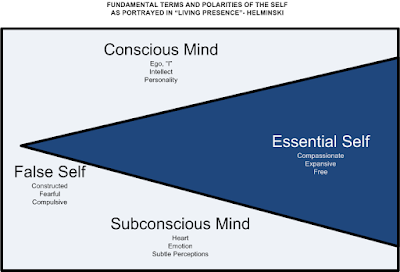Detachment
"One who would be serene and pure needs but one thing, detachment." -Meister Eckhart(13th century Christian mystic) Eswaran notes a most applicable issue in my life, that of non-identification with my own opinions(or preferences), a term known as detachment . My wife Leslie and I have been involved in an ongoing conversation about this discipline and how the practice of detachment brings much more peace and contentment in our daily lives. I can save myself lots of trouble and pain by not expending energy defending my opinions or preferences. To quote the teacher: "Most of us identify ourselves with our pet opinions. Then, when we are contradicted, we take it personally and get upset. If we could look at ourselves with some detachment, we would see how absurd this is. There is scarcely any more connection between me and my opinions than there is between me and my car. I have a close friend who is devoted to her Volkswagen Bug. If I compliment her on it, she is pleased; if...
